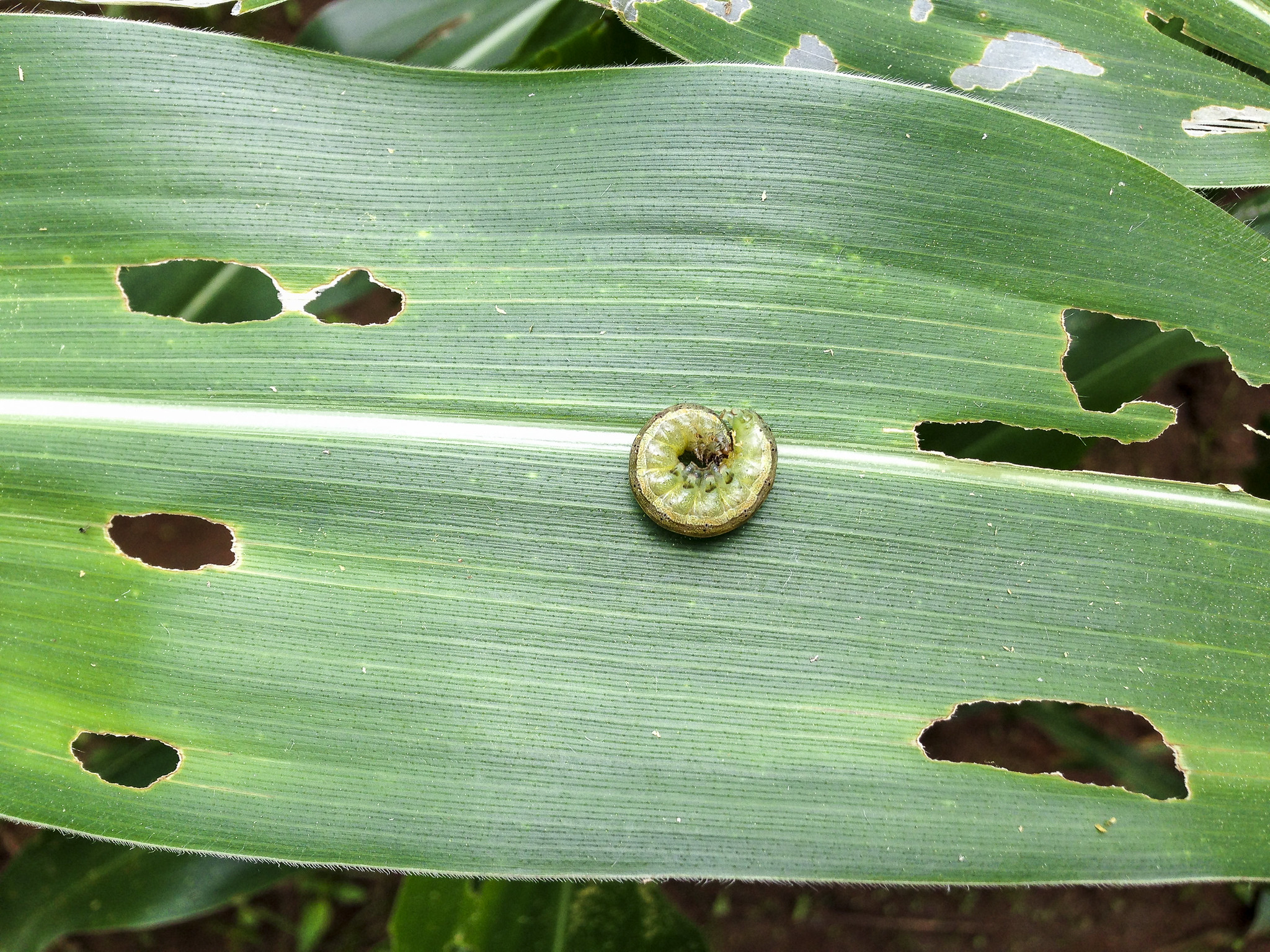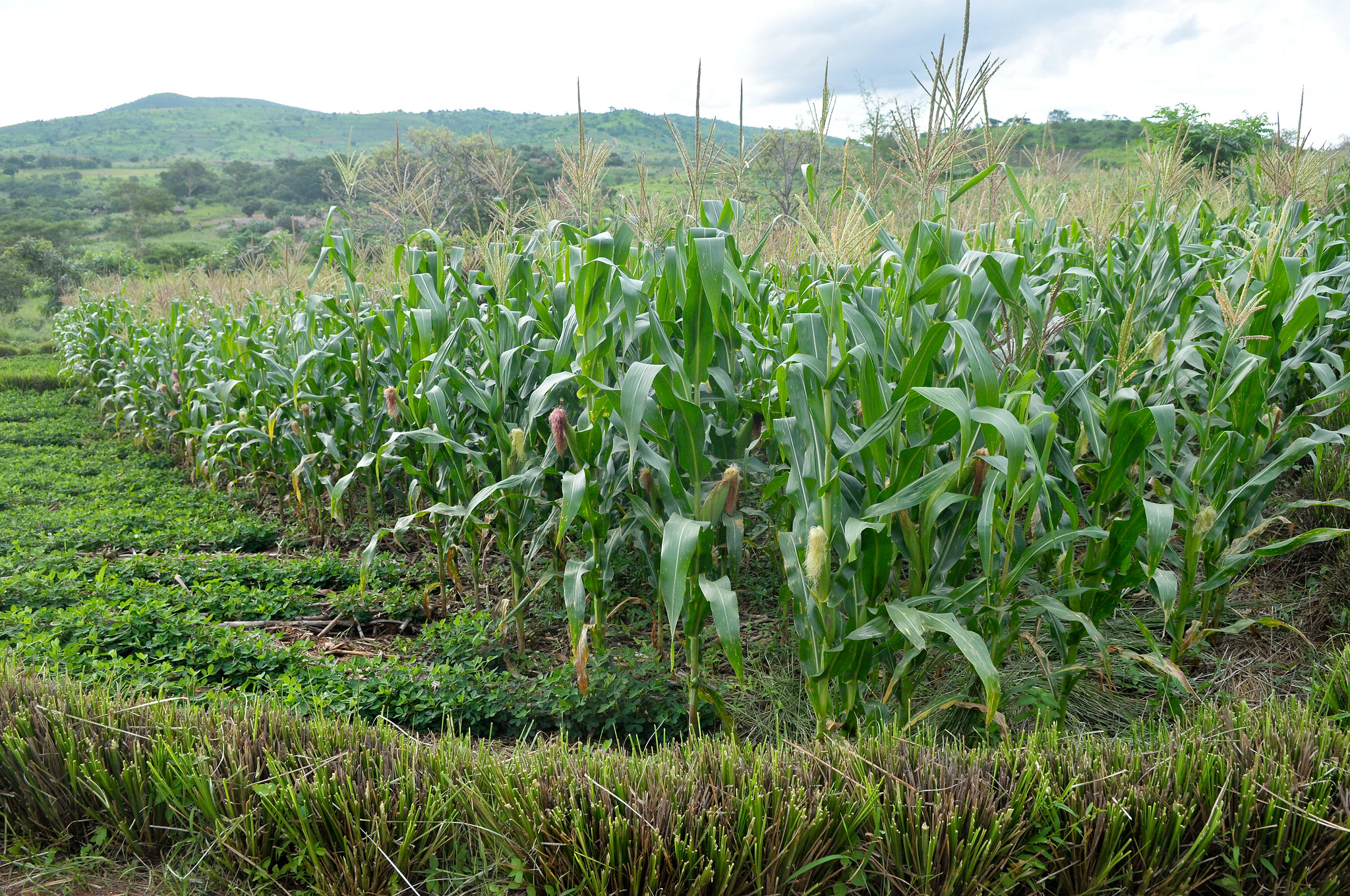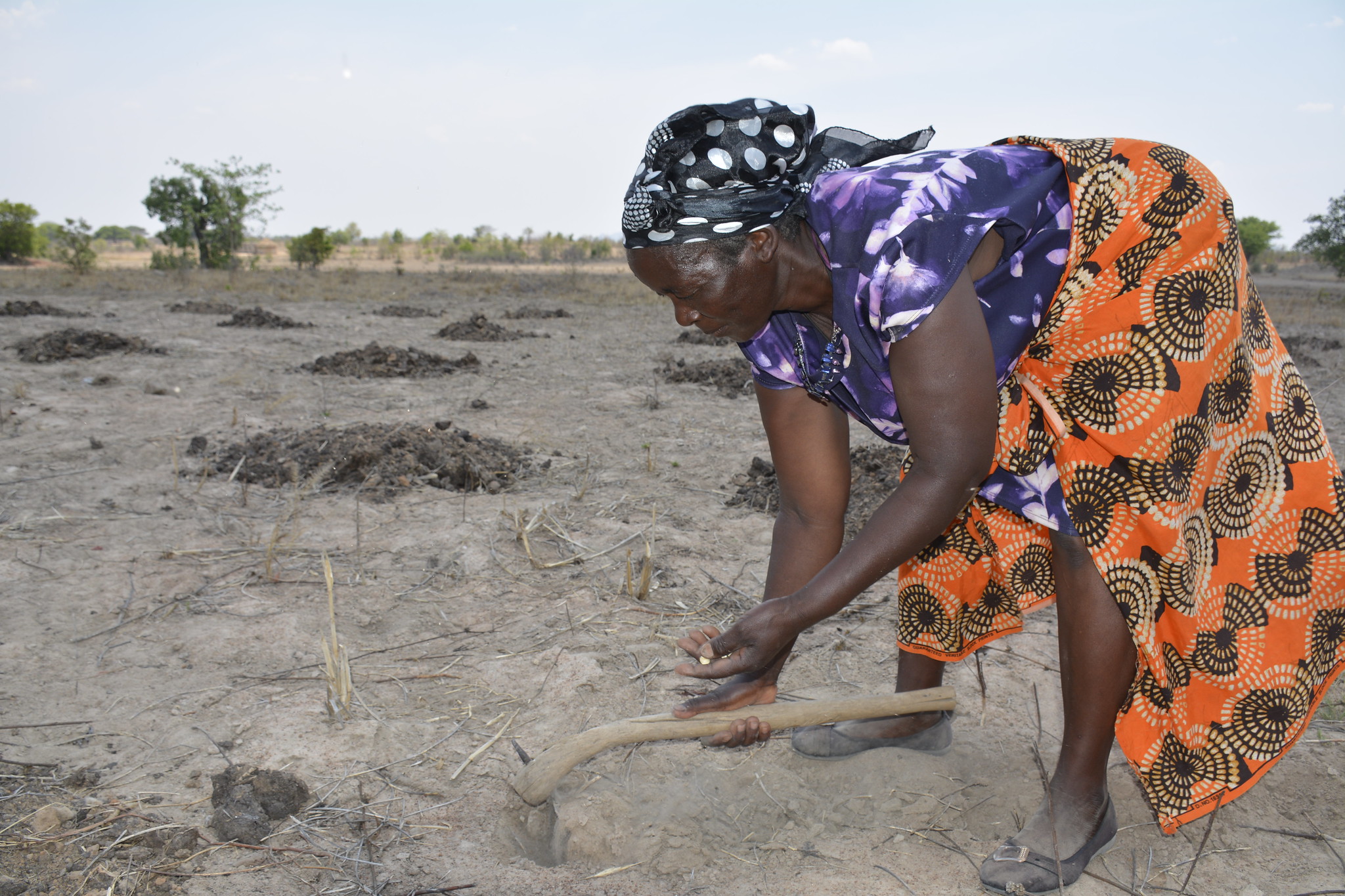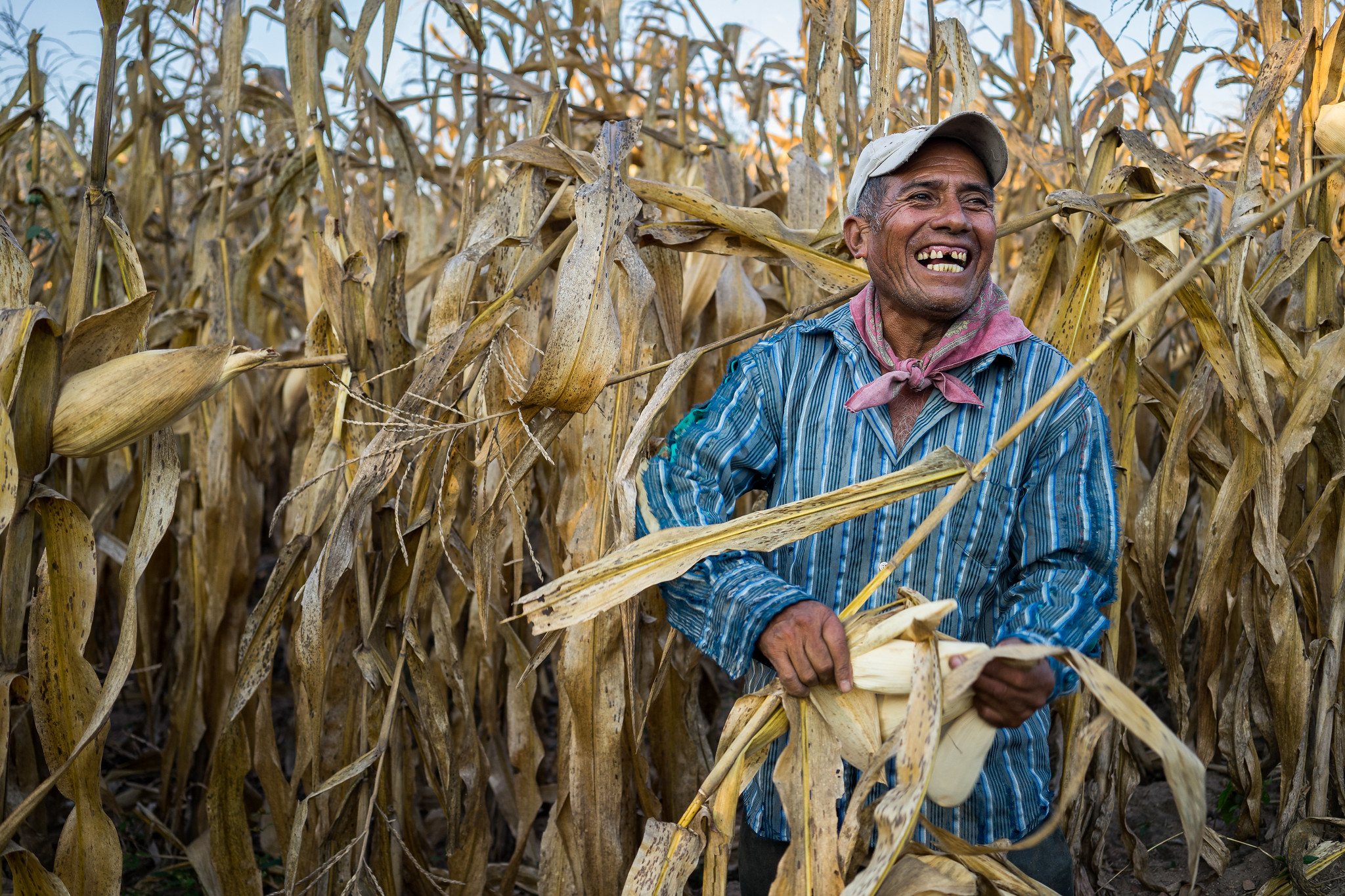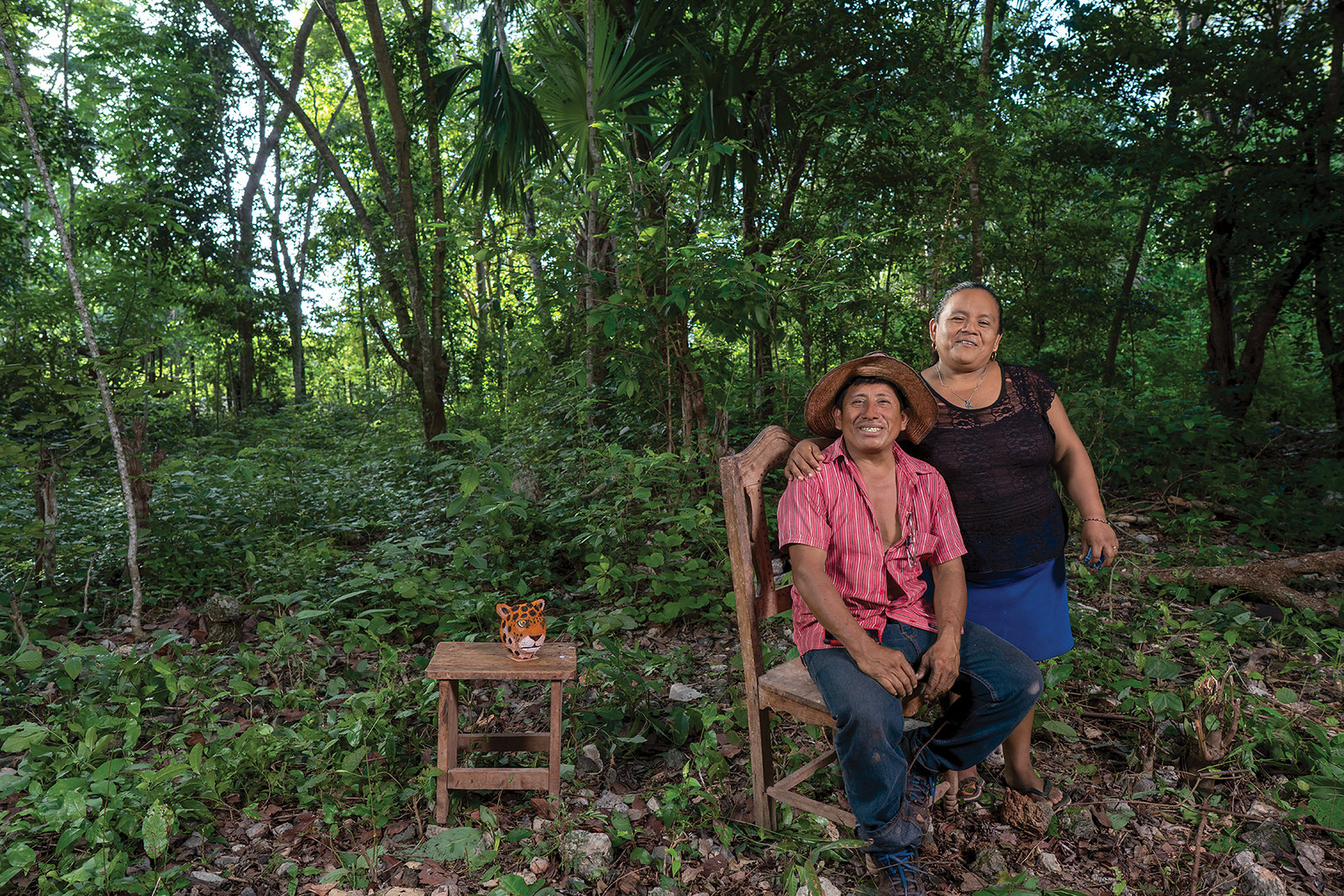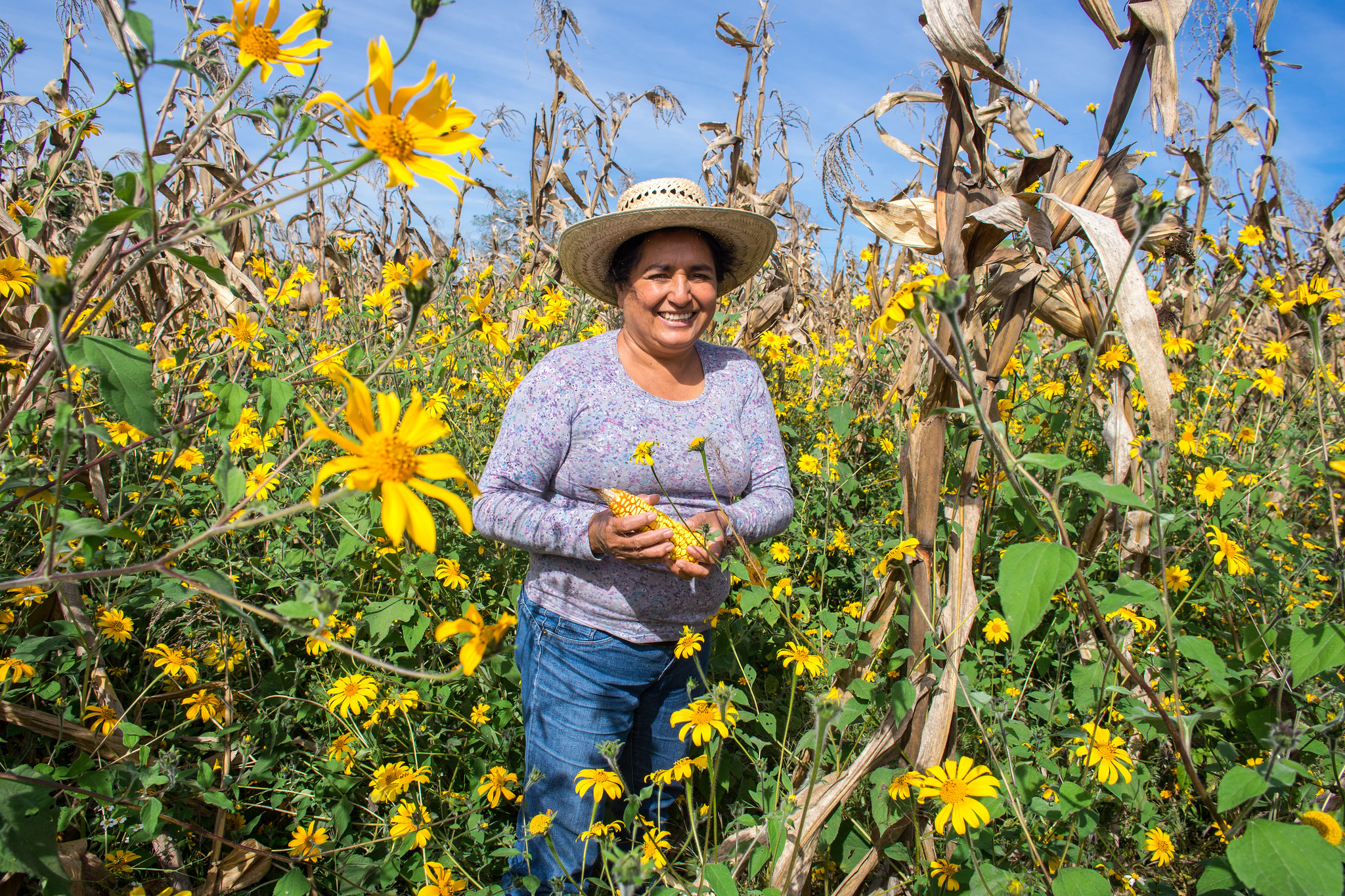Nutrition, health and food security
As staple foods, maize and wheat provide vital nutrients and health benefits, making up close to two-thirds of the world’s food energy intake, and contributing 55 to 70 percent of the total calories in the diets of people living in developing countries, according to the U.N. Food and Agriculture Organization. CIMMYT scientists tackle food insecurity through improved nutrient-rich, high-yielding varieties and sustainable agronomic practices, ensuring that those who most depend on agriculture have enough to make a living and feed their families. The U.N. projects that the global population will increase to more than 9 billion people by 2050, which means that the successes and failures of wheat and maize farmers will continue to have a crucial impact on food security. Findings by the Intergovernmental Panel on Climate Change, which show heat waves could occur more often and mean global surface temperatures could rise by up to 5 degrees Celsius throughout the century, indicate that increasing yield alone will be insufficient to meet future demand for food.
Achieving widespread food and nutritional security for the world’s poorest people is more complex than simply boosting production. Biofortification of maize and wheat helps increase the vitamins and minerals in these key crops. CIMMYT helps families grow and eat provitamin A enriched maize, zinc-enhanced maize and wheat varieties, and quality protein maize. CIMMYT also works on improving food health and safety, by reducing mycotoxin levels in the global food chain. Mycotoxins are produced by fungi that colonize in food crops, and cause health problems or even death in humans or animals. Worldwide, CIMMYT helps train food processors to reduce fungal contamination in maize, and promotes affordable technologies and training to detect mycotoxins and reduce exposure.
Protecting small farms in Mozambique from drought
 Nutrition, health and food security
Nutrition, health and food security
Source: Phys.org (23 Apr 2019)
CIMMYT partnered with UC Davis to breed maize seeds that can withstand drought.
Chicago’s tortillas are better than ever, thanks to Masienda’s heirloom corn from Oaxaca
 Nutrition, health and food security
Nutrition, health and food security
Source: Chicago Tribune (22 Apr 2019)
Three million subsistence farmers producing heirloom corn in Mexico are protecting biodiversity.
New study identifies best agronomic practices to reduce fall armyworm damage
 Nutrition, health and food security
Nutrition, health and food security
Good weed management, conservation agriculture, and use of manure and compost are recommended to help control fall armyworm in Africa.
CIMMYT and Clinton Foundation launch partnership to improve access to climate-resilient maize seed in eastern and southern Africa
 Climate adaptation and mitigation
Climate adaptation and mitigation
New partnership will help farmers in Malawi, Rwanda and Tanzania have better access to seeds that help maize crops better withstand growing challenges of drought, pests, diseases, and climate change.
Kenyan scientist urges African countries to adopt drought tolerant crops
 Nutrition, health and food security
Nutrition, health and food security
Source: Xinhua News (17 Apr 2019)
Stephen Mugo said that greater adoption of drought tolerant seeds combined with improved soil and water management is key to cushioning African small-holders from hunger and malnutrition.
To manage El Nino-related crop distress in eastern and southern Africa, invest in drought-tolerant seeds and better soil and water care
 Climate adaptation and mitigation
Climate adaptation and mitigation
Government support vital for deploying climate-resilient seeds and practices, say agriculture experts
UQ licenses high-yield wheat variety
 Nutrition, health and food security
Nutrition, health and food security
Source: Food Processing (16 Apr 2019)
Australian farmers to benefit from CIMMYT high-yielding, white-grained wheat.
Tek Sapkota
 Climate adaptation and mitigation
Climate adaptation and mitigation


